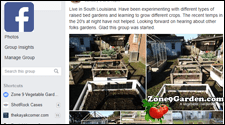The soil you inherit with your garden is only the starting point, as improvements to structure and fertility will be made as soon as you start adding well-rotted organic matter by digging and mulching. The difference will be obvious even after a couple of years of good cultivation. To make our kitchen garden, we had to dig out an old blacktop driveway and, inevitably, the soil structure across the whole plot was poor. But by digging in plenty of compost and manure we grew good crops right from year one. Sowing fine seed direct into the soil was impossible in some areas, because there were too many sticky lumps. But we worked around this by planting seed potatoes in the worst parts, and by raising crops like lettuce, runner beans, and corn under glass and planting out from pots.
Animal manure
Never use fresh manure, because it gives off ammonia harmful to roots. The ammonia and other soluble nitrogen compounds are used by bacteria and stored in their bodies to be released when the bacteria die. Spreading rotted manure is also more efficient, because one ton of fresh manure will lose half its weight in the rotting process. Horse manure is the richest (especially when the animals have been bedded on straw or shredded hemp), followed by pig, cow, and poultry manure. A light covering of the soil or trench with manure is all you need and I often apply manure 50:50 with well-rotted garden compost. Poultry manure is caustic to plant roots and I never add this directly to the soil. Instead, I add chicken manure to the compost heap and let it work in there as an accelerator, finally adding it in well-rotted and mixed form. Horse manure is available in most areas, but you usually have to forage for it yourself. In rural areas, arrange with a local farmer to deliver cow muck. Be fussy about the origin of manure, especially if you garden organically. Avoid manures from intensive production systems because they could contain contaminants. Most horses and ponies are wormed regularly, but chemical residues should dissipate during decomposition.
Garden compost
Conditioning your soil using garden compost produced and rotted down on-site is the most efficient way of disposing of household and garden waste and nourishing your soil at the same time. In this environmentally sound approach, no fossil fuels are burnt in the process and little energy is used other than your own. The rich, nutritious compost that results can be used to dig in or as a mulch.
Leaf mold
Well-rotted autumn leaves provide a fabulous soil conditioner, particularly good for your woodland plants, as this is what they would grow in naturally. Instead of layering collected leaves into the compost heap or bin, stack them separately, allow them to break down to a crumbly dark mass and add to the soil the following year. You can even break leaves down by bagging them up, adding a microbial compost activator, making a few air holes in the bag, and sealing it up.


